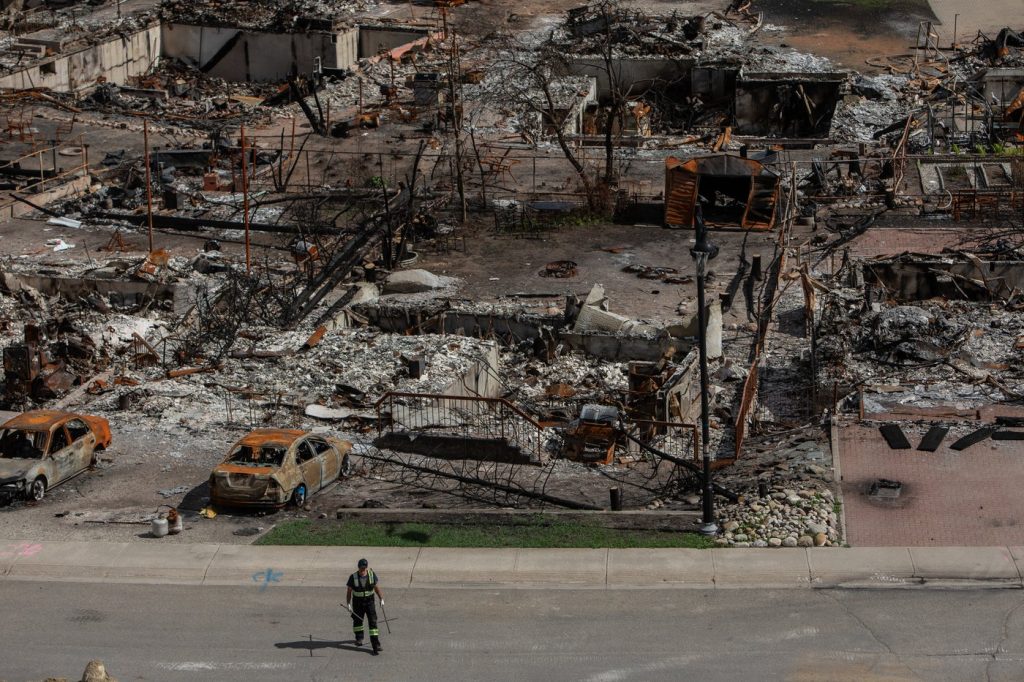A recent report into the devastating wildfire that struck Jasper, a resort town in the Rocky Mountains, last summer has highlighted significant challenges in the emergency response, particularly involving the Alberta government's involvement. The inquiry, commissioned by the town and derived from feedback from participants and firefighters, revealed that while crews worked diligently to combat the blaze, communication and command were complicated when provincial authorities intervened.
The wildfire resulted in the destruction of approximately one-third of the buildings in Jasper, situated in Jasper National Park. The document, released on a Thursday, emphasized that the incident's command structure was initially effective, with local town officials and Parks Canada working collaboratively. However, the situation became complicated due to the Alberta government's involvement, which, while not holding jurisdictional responsibility, frequently requested updates and sought to assert decision-making power during the crisis.
As noted in the report, this external involvement disrupted the focus of incident commanders. Time, which was crucial for firefighting efforts and facilitating the return of evacuated residents, was lost as commanders dealt with inquiries instead of managing the fire response. The report states, “Provincial involvement added complexity to the response,” highlighting the jurisdictional overlap that led to political challenges, thereby impacting operational effectiveness.
Additional concerns were raised regarding the Alberta Emergency Management Agency. Issues such as inefficiencies in signing in, tracking, and checking out resources were identified, which led to a lack of awareness about resource availability and location. Consequently, these inefficiencies contributed to safety risks and hindered the effective allocation of resources necessary for firefighting operations.
The recommendations for improvement include the establishment of formal agreements and communication plans between the town, Parks Canada, and relevant provincial agencies to clarify leadership roles and decision-making processes. Enhanced collaboration, as suggested, would enable all parties involved to optimize their emergency response efforts effectively.
The report also underscores the necessity for increased training, involving regular practice drills that engage multiple agencies, to ensure a more seamless response in future emergencies. It emphasizes the importance of improving communication among first responders to address challenges such as delays in tactical updates and uncoordinated firefighting efforts.
Despite a focus on the difficulties faced, the report acknowledges the commendable successes achieved under severe conditions. It states that responders managed to protect 68 percent of the town and all critical infrastructure, thanks to sound operational tactics, timely deployment of structure protection resources, and the inclusion of local technical experts in fire operations.
The town’s chief administrator, Bill Given, indicated that the findings of the report were shared in hopes of contributing to a broader understanding that could help other communities in Alberta, similar to the experiences of Fort McMurray and Slave Lake, which also suffered from major wildfires in previous years.
The identified challenges and recommendations in the report were timely, coming just a week before the one-year anniversary of the fire, which struck on July 24, 2024, and resulted in significant loss, displacing around 2,000 residents. Fortunately, an estimated 25,000 residents and visitors were evacuated safely days prior to the fire’s full impact. However, tragedy struck when a 24-year-old wildland firefighter, Morgan Kitchen, lost his life due to a falling tree while fighting the blaze.
Residents were permitted to return home three weeks after the fire began, although the wildfire was not declared officially extinguished until April of the following year. This report serves as a crucial aid in recognizing the challenges faced during emergencies, advocating for better systems and practices in place to safeguard communities in the future.












